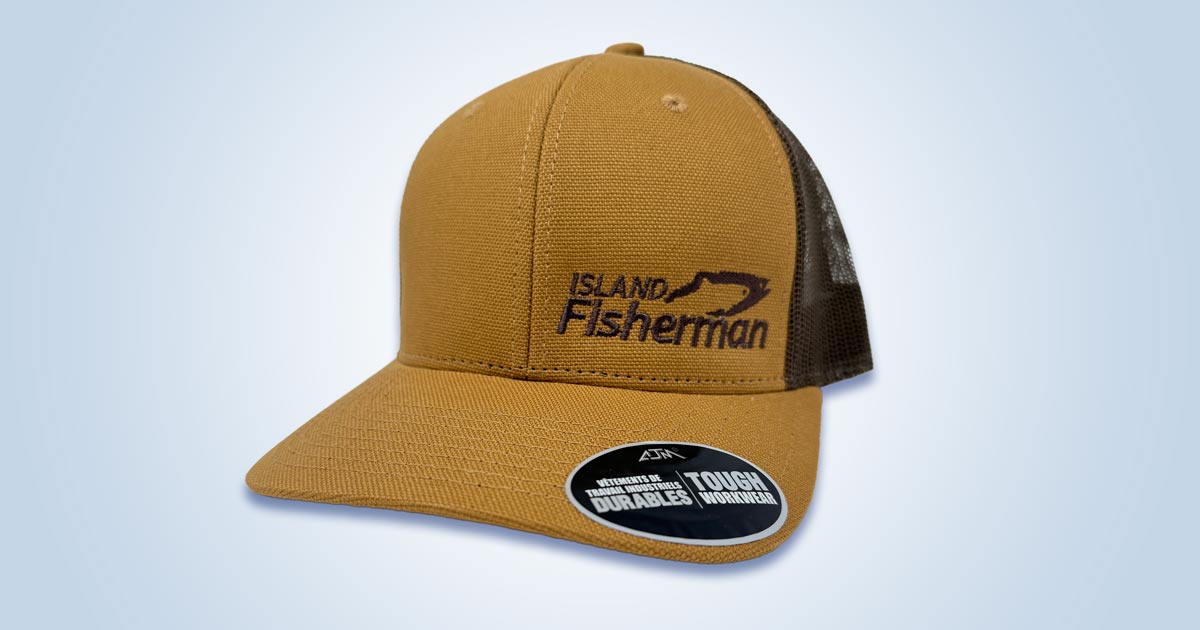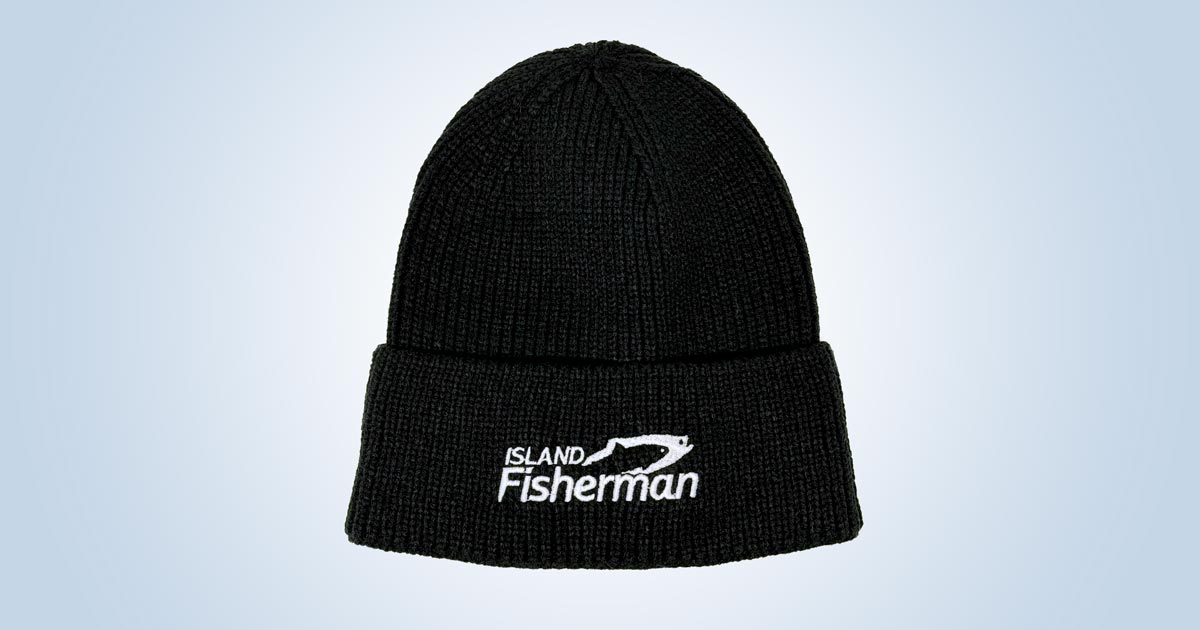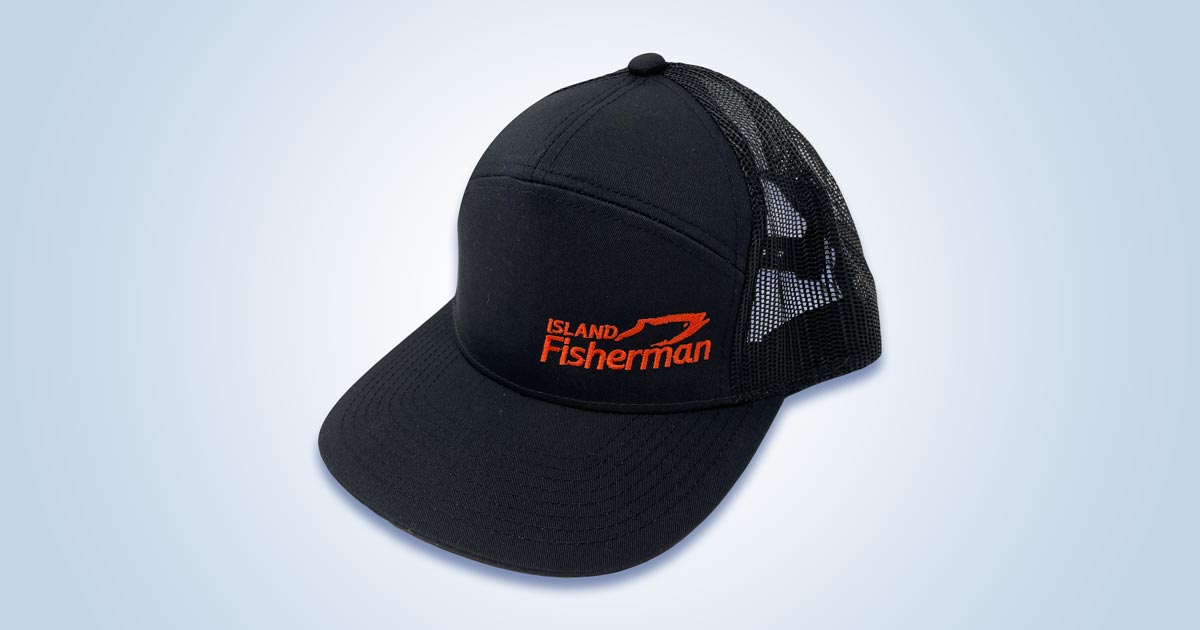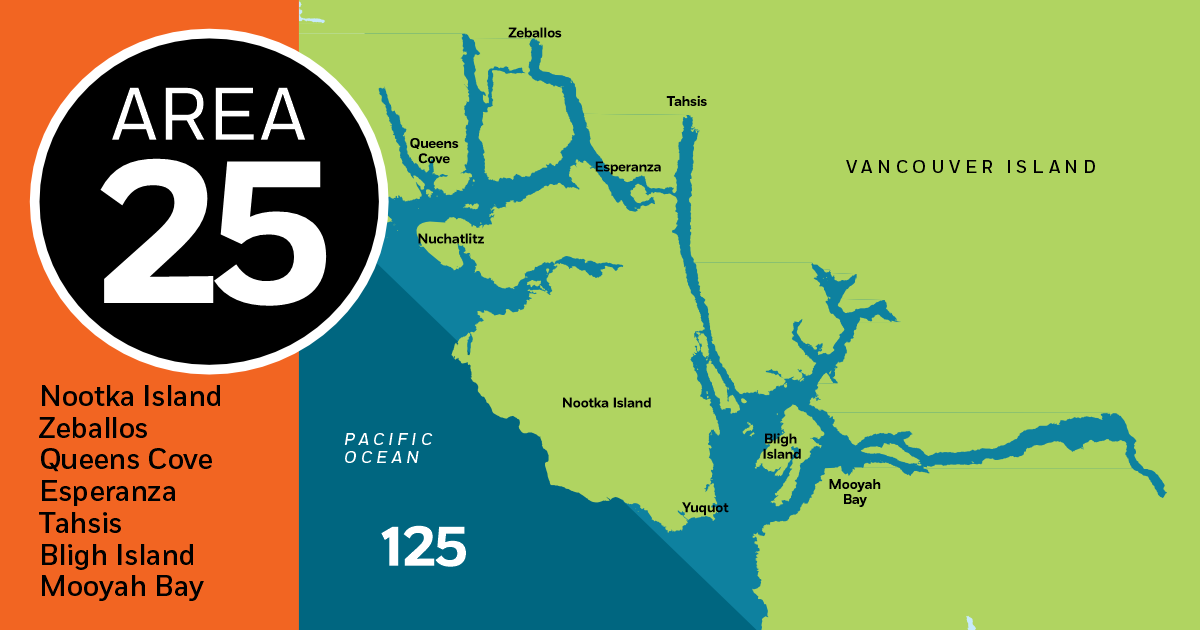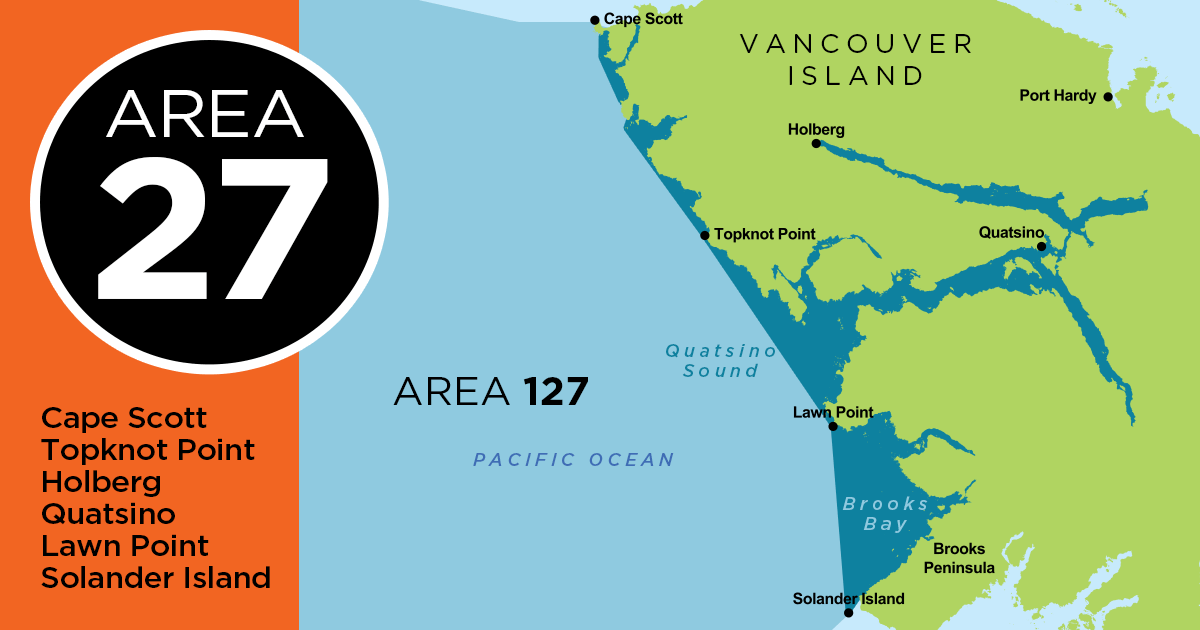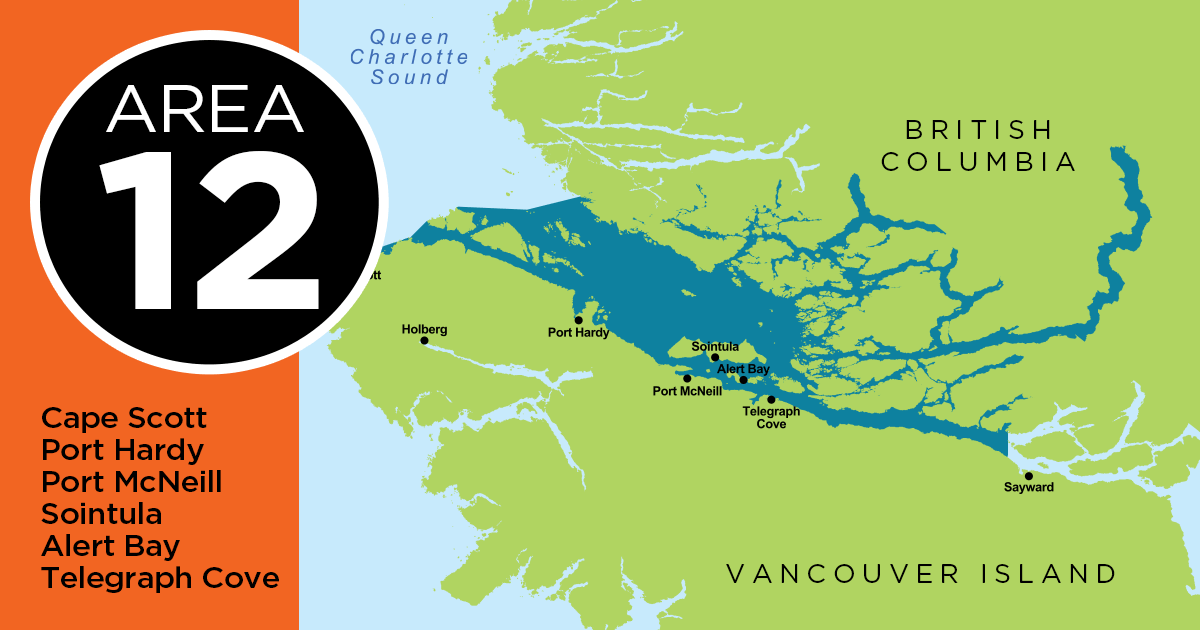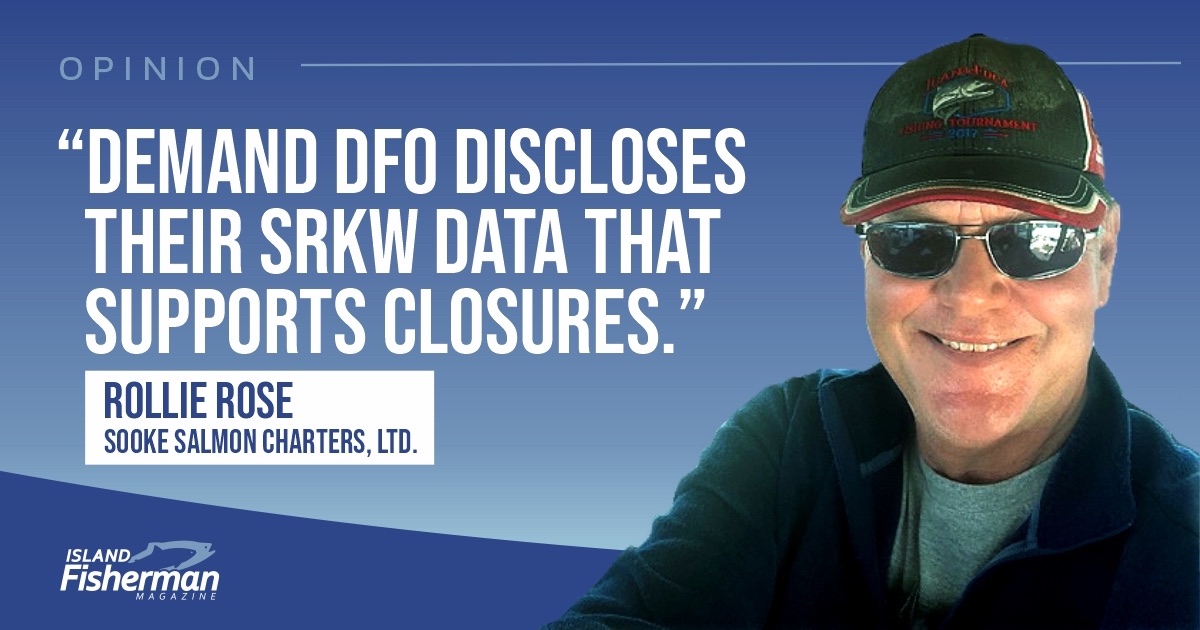
The DFO’s SRKW recovery team is again pushing for further area closures in area 20 this coming summer (2024), and Otter Point is included once again. That means it could be off limits to recreational fishing in 2024.
Every B.C. recreational angler should be demanding to see the data/science that would support these measures. As a 38-year full time fishing charter operator in area 20 and before that a regular weekend and summer angler at Otter Point back to the late 60’s, I know they don’t have it.
This is nothing more than complete political interference in support of Non-Government Organizations (NGOs). Over 2023 I saw the SRKW once, and small groups of transients twice. The SRKW’s were not foraging on the day I saw them—they were all transiting through the area on their way (I’m assuming) to the west side of San Juan Island.
With all the hatchery Chinook production returning to NW American hatcheries these whales, for over five years, are now targeting fish off the West Coast Vancouver Island (WCVI) as they return south to their rivers. If the DFO is serious about helping these whales, why then have they not developed, approved, and implemented, a viable plan to rebuild Fraser 5-2 and 4-2 Chinook stocks? The whales will follow and forage on those stocks if they are there. They would need to be in numbers and size that will draw them away from the more plentiful American hatchery food source they currently target off WCVI.
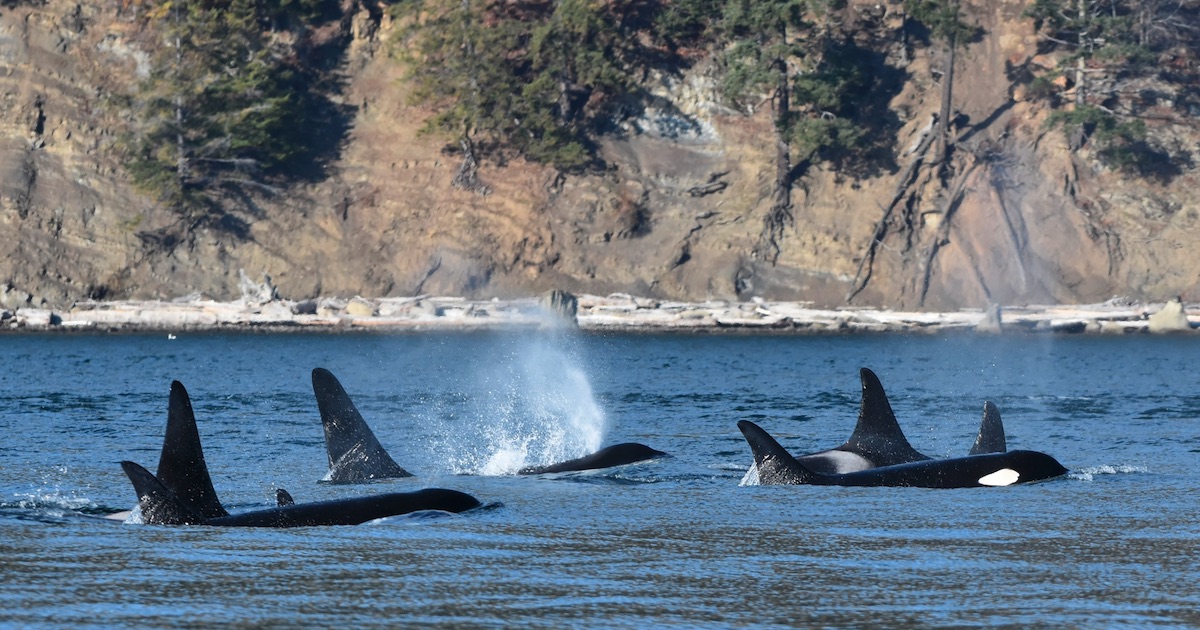
Southern Residents in Salish Sea. Photo: Monika Shields Photo: Orca Behavior Institute
I have thousands of personal encounters with the Southern Resident Killer Whales (SRKWs) going back to 1967—our family has owned a Gordon’s Beach cabin since 1958. My grandfather told me many stories of fishing along the old Todd salmon traps. I have never witnessed sport fishing boats effecting these whales in any negative way while fishing. I have seen boats of all varieties getting too close by running up to them. Back in the day, before the current rules, getting clients up close was done by determining their position and putting the boat well in front of them and then shutting down and allowing them to swim past us. This is something I no longer do, but even this did not cause the whales to veer off their intended path. They would swim under the boat, roll on their side, and look up at us as they swam 10-15ft under us. I rarely see anyone doing this anymore but the odd time it happens, those individuals get educated quite fast by other anglers in the area.
Ninety percent of the time, these whales are not foraging and are simply transiting the area, especially in more recent years.
Thirty years ago, they often went by weekly, and during some periods, daily. Back then, there was more foraging going on because more fish were present along the entire coast. There are 8,760 hours in a calendar year. If the whales now transit JDF Strait 10 times in a summer, they are only spending on average, two hours each time in the waters between Race Rocks and Sheringham Point. That is twenty hours total in those waters in a year.
If they are not foraging 90% of that time, then eighteen hours is spent simply transiting. But to prove the data/science is not on DFO’s side let’s say they are foraging 100% of those twenty hours when they are in Area 20 each year. Twenty hours is 0.0023% of 8,760 hours. So, at best, these further closures will remove sport boats from the proposed closed waters in Area 20 and provide the SRKW’s with so called quieter waters for 0.0023% of their year. How does DFO justify a closure with an impact that barely registers mathematically? It would be so refreshing to just get the truth.
-Rollie Rose, President Sooke Salmon Charters Ltd
Disclaimer: Island Fisherman magazine welcomes opinion articles for publishing consideration. The views expressed by the writers of opinion articles are their own, and do not necessarily reflect the views of Island Fisherman magazine, or Compass Media Publishing, Inc. Therefore, Island Fisherman magazine carries no responsibility or liability for the opinion expressed thereon.
Do you have an opinion? Review our policy and instructions here:👇
Visit the Store
$34.99
$34.99
Featured Catch
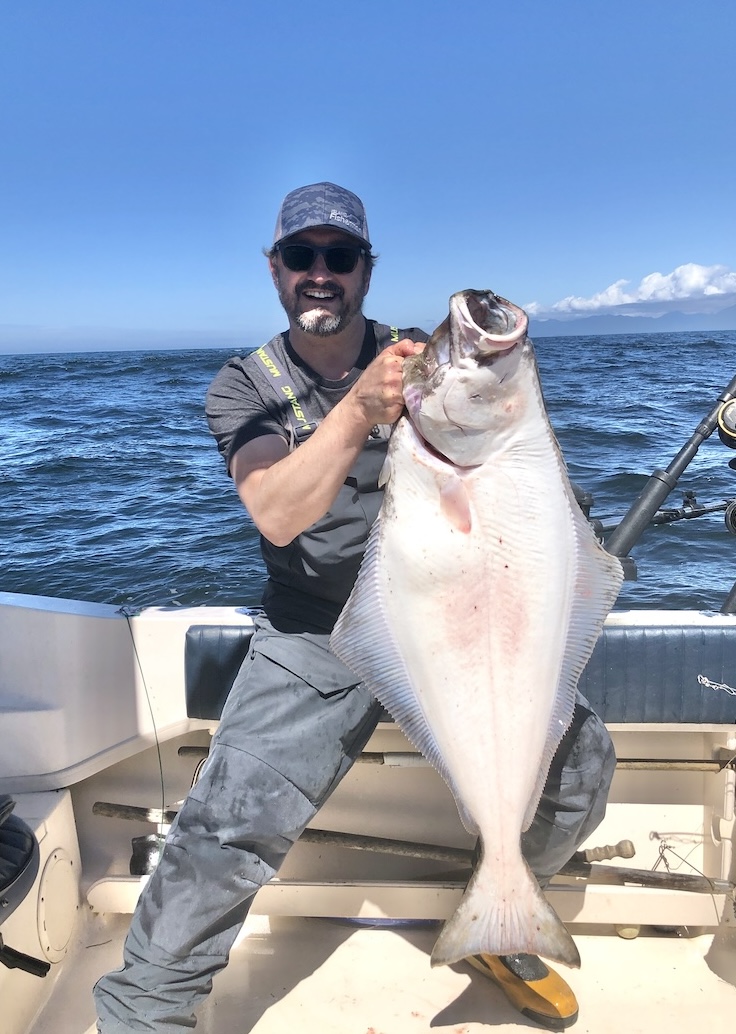
Joel Unickow halibut (Photo: Rob Frawley Lucky Strike Sportfishing Tofino)


